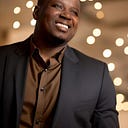A Reflection on Katt Williams Interview with Shannon Sharpe
In a recent interview on Shannon Sharpe’s YouTube show, the ever-hilarious Katt Williams took the stage, sparking laughter and controversy simultaneously. Known for his wit and audacious humor, Williams dived into a two-hour discourse, blaming fellow comedians and actors for hindering his success. While the interview provided entertainment, it also left viewers, like myself, reflecting on the dangerous allure of blaming others for our own shortcomings.
The Allure of Blame:
As Williams pointed fingers at Hollywood heavyweights, including Steve Harvey, Cedric the Entertainer, and even Joe Rogan, it became apparent that blame can be a corrosive force. The temptation to shift responsibility onto external factors may offer momentary relief, but it often leads to bitterness and resentment, hindering personal and professional growth.
Reflecting on Our Own Blame Game:
Watching Williams vent his frustrations, I couldn’t help but see reflections of my own past behavior. How often had I pointed fingers at circumstances beyond my control, both professionally and personally? It was a moment of realization that blame, whether justified or not, often mirrors bitterness and a lack of personal accountability.
The Pitfalls of Victim Mentality:
Williams’ narrative echoed a victim mentality — a mindset that suggests success is predetermined by external forces. In his words, Hollywood has gatekeepers, secret clubs, and an elusive network that dictates success. However, dwelling on such beliefs can become a self-fulfilling prophecy, stifling ambition and hard work.
Shifting from Blame to Responsibility:
The pivotal moment comes when we choose responsibility over blame. Acknowledging that success is within our control, irrespective of external obstacles, empowers us to rise above challenges. Rather than lamenting missed opportunities, the determined mind strives to improve and excel, understanding that personal growth is the key to success.
Overcoming Hollywood’s Alleged Gatekeepers:
Even if Williams’ claims about Hollywood’s gatekeepers hold true, it does not render success impossible for those who refuse to succumb to a victim mentality. Countless comedians and actors stand as testimony, having navigated the industry with integrity and perseverance. The secret lies in resilience and a relentless pursuit of goals.
The Power of Personal Accountability:
In the face of adversity, one can either condemn, criticize, and complain or rise to the occasion. Taking responsibility requires acknowledging that if opportunities slip away, it’s not solely due to external factors but an opportunity for personal improvement. The mindset of “if it is to be, it’s up to me” becomes the driving force towards achieving one’s dreams.
As we discuss Williams’ experiences, it’s crucial to respect his voice and acknowledge the challenges he faced. Balancing accountability and avoiding gaslighting, we can appreciate his journey, recognizing that industry dynamics can be complex. Williams’ insights prompt us to consider a nuanced perspective, fostering a healthy dialogue around success, challenges, and the diverse experiences within the entertainment world.
Conclusion:
As we appreciate Katt Williams for his comedic genius, it’s crucial to learn from his journey. Blame may offer a temporary refuge, but it’s responsibility that leads to enduring success. In a world where gatekeepers may exist, a determined mindset can overcome any obstacle. So, let’s break free from the chains of blame, embrace responsibility, and relentlessly pursue our dreams, for it is the ones who rise to the occasion that ultimately triumph in the end.
Peace and love
Andrew Tremendous Jones
